Spring has Sprung at PCWD
The sun is shining and things are starting to bloom!
It’s not too late to start your own Monarch Butterfly garden. Come by the office for FREE milkweed seeds.
We’ll keep you updated here on the status of our garden(s).
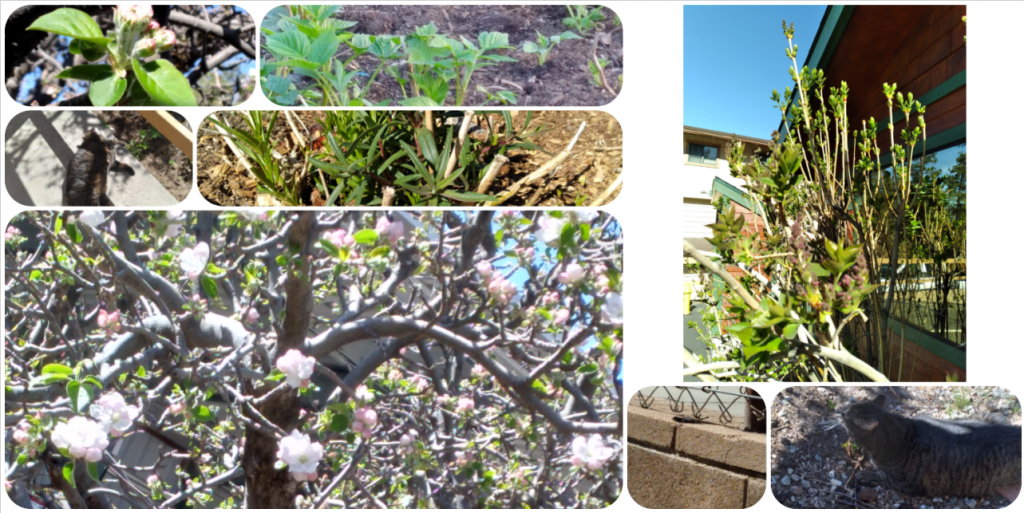
Pine Cove Water District
Archive for Pine Cove Water District
The sun is shining and things are starting to bloom!
It’s not too late to start your own Monarch Butterfly garden. Come by the office for FREE milkweed seeds.
We’ll keep you updated here on the status of our garden(s).

Thinking gardening time is just around the corner? Just in time for spring cleaning, the PCWD offers free mulch and wood chips to its customers. If you are interested in either wood chips or mulch just come on by the Dutch Flats location anytime. Both are great for gardening, holding in moisture of soil and they make a nice added touch to spruce up your yard or potted plants.
You must bring your own materials to gather or shovel and haul the mulch or wood chips away. If you are planning on gathering a large amount on your own, please let us know in the office as we want to be sure there is enough for everyone.
If you need a larger load of either call the office and we can deliver a dump truck load for $125 delivery charge.
APRIL SPECIAL
Get a dump truck load of WOOD CHIPS for ONLY $75.00
Our deliveries are around 9 cubic yards and you just need to indicate where to leave the pile.
We are a full month into 2021. The pandemic has played a major role in all of our lives over the last year. Businesses have been affected and we are no different.
Since the beginning of the pandemic, in addition to sanitizing all surfaces, wearing masks, and washing our hands often, we took additional precautions such as limiting the amount of in-person services we accommodate and even building a partition at the entrance of our building as well as in between our desks. When the numbers escalated, we split the office shifts to reduce the amount of personal contact we have with each other.
We are happy to announce that as of February 1st, Becky and Jennifer are in the office for their normal business hours of 9am – 4pm. We are still limiting the amount of in-person services and keeping our office “closed” to the public. Our mail slot in the door is accessible at all times to drop off payments and communications, we are available by phone at 951-659-2675, our emergency after hours number 951-294-8282, and by email Becky@pcwd.org and Jennifer@pcwd.org.
Through all of this, it is important to check in on each other. Reach out to your friends and family. If they are isolating during this pandemic, they could probably use someone that cares.
Stay safe and be well.
We were so excited this morning when we went out to look at our milkweed and found 16 NEW MONARCH CATERPILLARS!
We get to start over! They are SO cute.
Of course we are very careful about what we use to take care of our garden. Did you know that there are reports saying glyphosate weedkiller like Roundup is killing the Monarch butterfly growth?
According to a recent article from Genetic Literacy Project; media and advocacy groups are not fully reflecting the issue.
“Why are Monarchs in decline? It’s a hotly-debate issue, with many studies with competing conclusions. Anti-biotechnology activist groups have singled out the herbicide glyphosate as a major driver of the decline, so the issue is embedded in a wider, inflamed debate over the controversial weedkiller. Which makes it all the more important that any new science on this issue should be contextualized and reported with nuance.”
From what I’ve read, it seems to be a domino effect with the weedkiller being used on the milkweed and killing that, leaving nothing for the caterpillars and butterflies to eat and lay their eggs on.
Of course there are conflicting studies that say there is a much bigger issue than the glyphosate theory. Some say the real issue is ‘how do we restore weeds’.
My definition of weeds has always been a plant that I don’t want growing in my garden bed. But milkweeds are ALWAYS welcome.
Bottom line in my mind – use natural remedies on your plants to maintain the natural balance of nature.
And I always recommend that people read multiple sources if interested in a “controversial” subject and form your own conclusion.
In the meantime – enjoy our little guys.
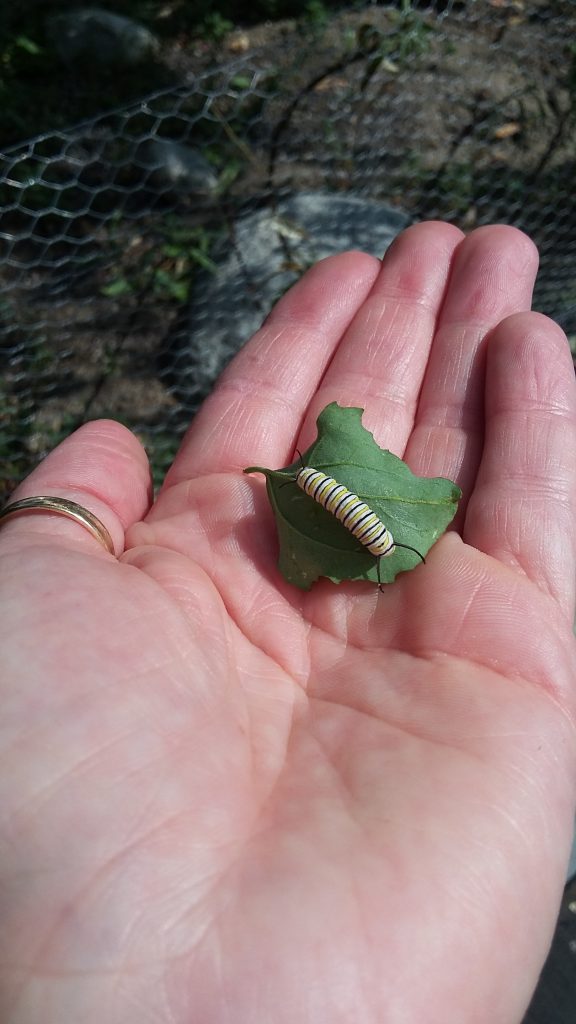
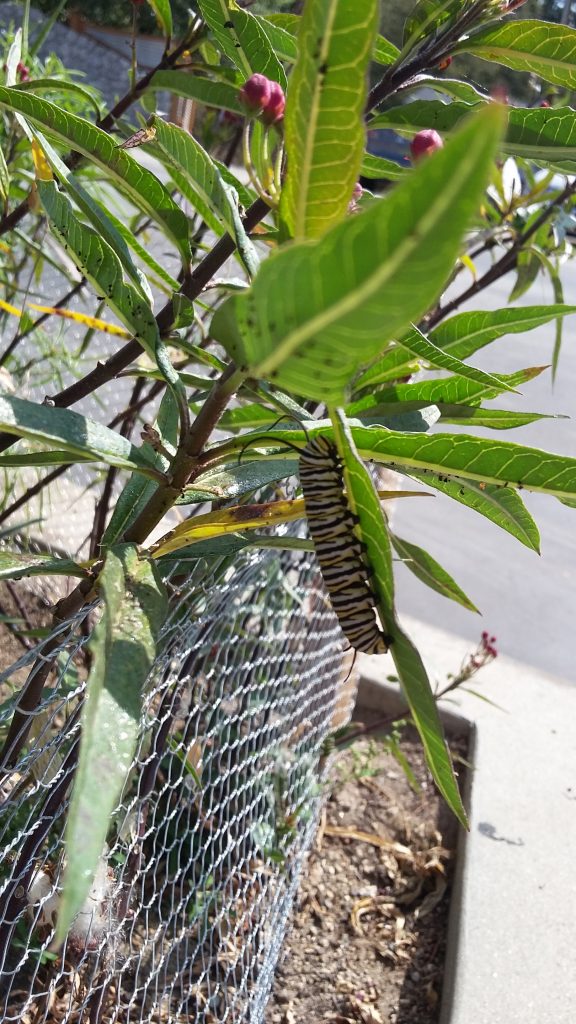
Looking for a Halloween hand out to promote milkweeds and future Monarchs? I came across this promotion: Milkweed seed Halloween Promotion.
(I have never ordered from them before and cannot validate their product)
We are trying our best to help the Monarch Butterfly population with planting milk weeds, bringing the caterpillars in to a safe habitat when they look like they are about to form a chrysalis, and releasing them into our garden when the butterflies emerge.
Our season looks like it’s complete as all of the caterpillars we had have hatched and flown away. We are happy that a couple have decided to stick around and play in our milkweeds and look forward to next year when we can help the community more.
Here are some pictures of the development.
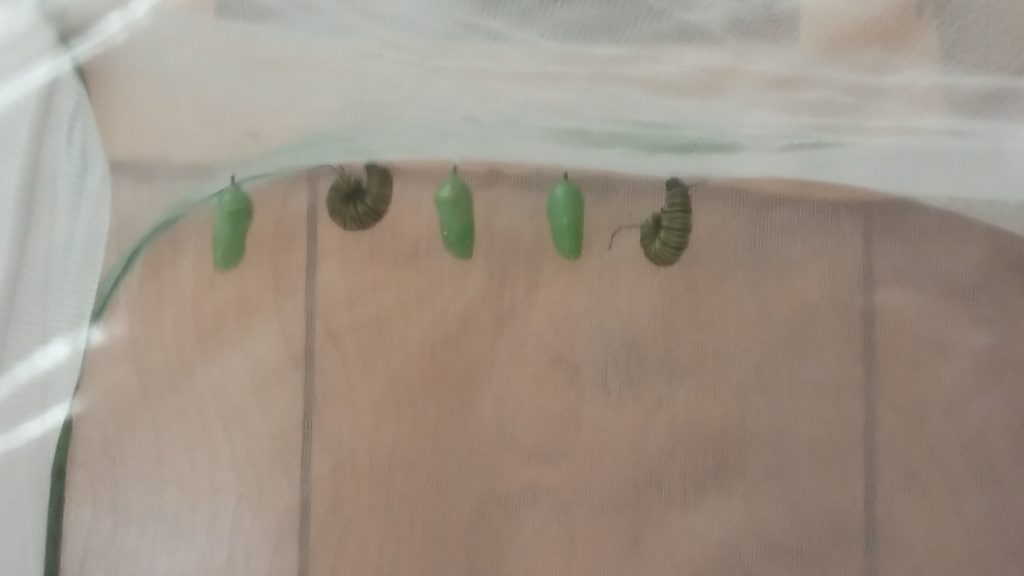
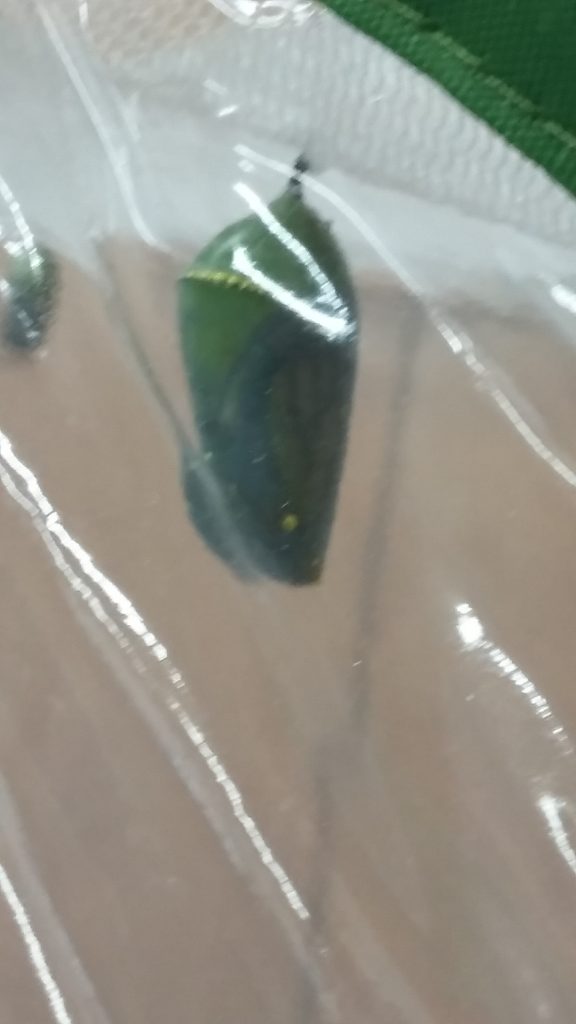
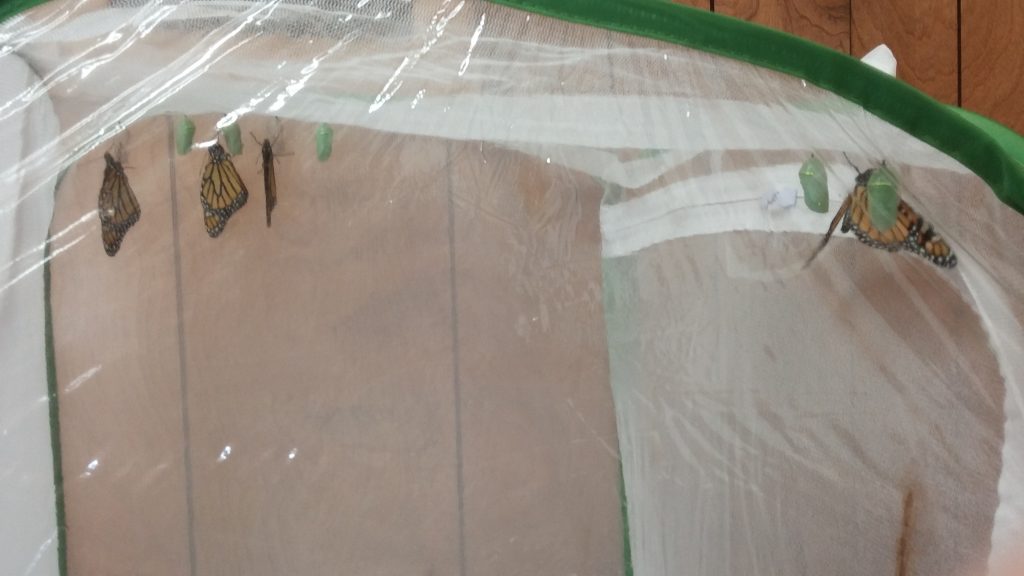
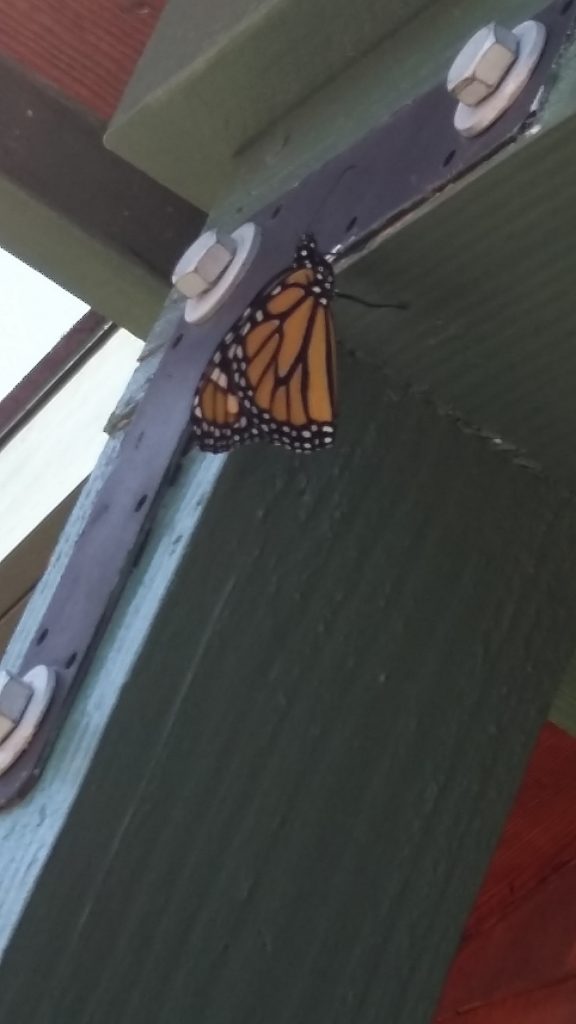
I recently read an article in The San Diego Union-Tribute dated July 13, 2020 that said butterfly plants are in short supply. They cited the pandemic-fueled gardening boom as well as public’s awareness of shrinking monarch population and wanting to help increase it. The Center for Biological Diversity put a release out on March 13, 2020 that stated the yearly count of monarch butterflies overwintering in Mexico shows a decrease of 53% from last year’s count and is well below the threshold at which government scientists predict the migration could collapse. They attribute the decrease of Monarchs to milkweed being devastated by increased herbicide spraying in conjunction with corn and soybean crops that have been genetically engineered to tolerate direct spraying with herbicides. Additionally, they are being threatened by other herbicides and by neonicotinoid insecticides that are toxic to young caterpillars and decrease the health of adult butterflies.
At the Pine Cove Water District, we were lucky enough to procure several new narrow-leaf milkweed as well as tropical milkweed for our butterfly garden. We’ve even seen a couple of visitors and look forward to seeing more as we come to the end of the season.
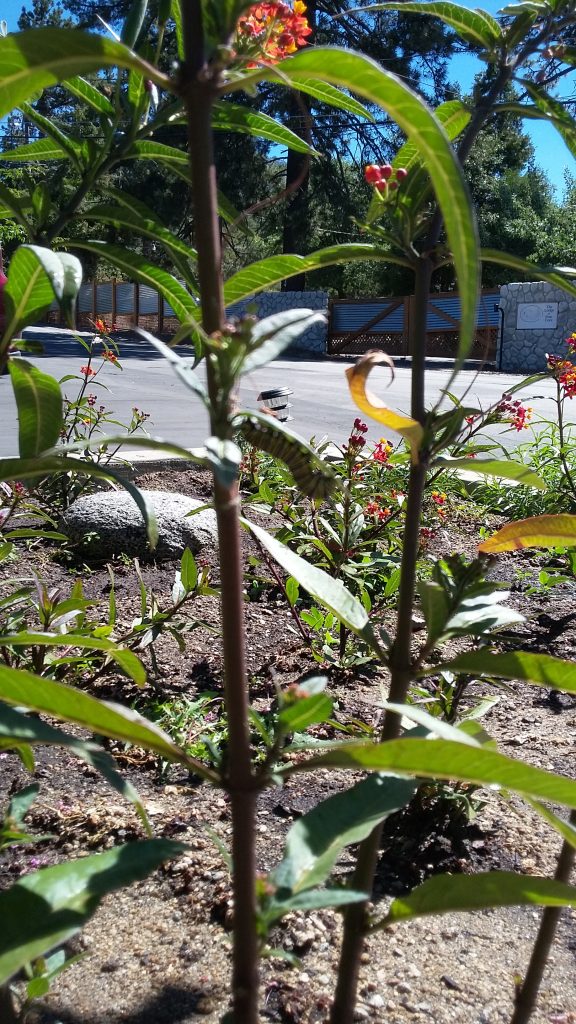
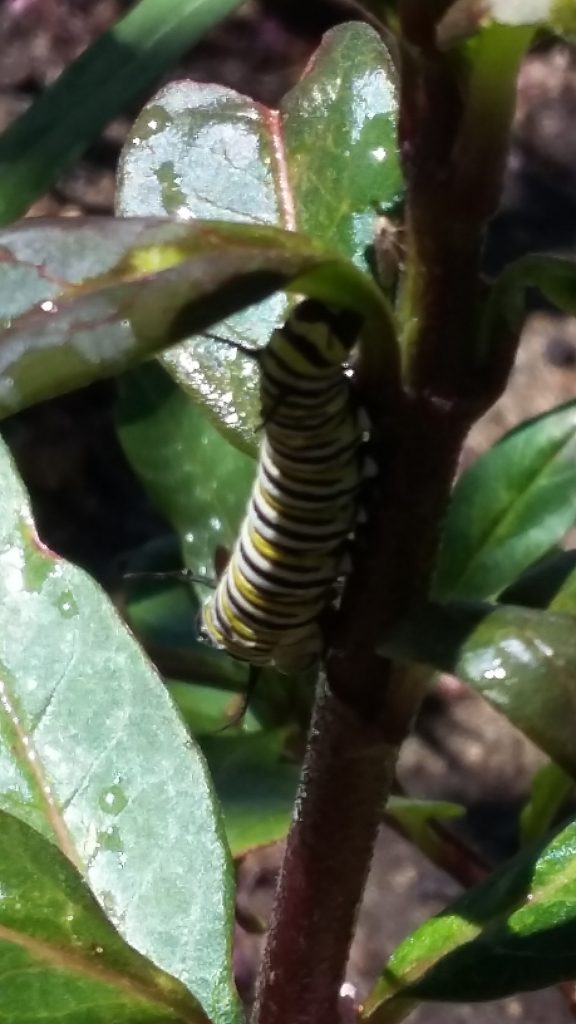
What can you do to help?
Plant the right milkweed.
According to The Laid-back Gardener, Monarchs seem to like common milkweed best but also fed happily on swamp milkweed. Apparently, butterfly weed isn’t too well liked in the caterpillar community.
Cut your milkweeds back.
Prior to blooming, cutting back the plants make them more attractive hosts for caterpillar larvae. Research at Michigan State University shows that female monarchs prefer to lay their eggs on fresh young stems that haven’t flowered yet. Heavy pruning doesn’t harm the milkweed plants and they quickly rebound.
Know your sources and avoid pesticides, insecticides, and herbicides.
When purchasing flower starts or seed, know the source. Make sure they are all natural and have no pesticides. Additionally, keep that same mind set when amending your soil and use natural compost like the compost we supply at the Water District to Pine Cove residents.
Plant additional flowers to feed adults.
Although the female monarchs only lay their eggs on milkweeds and their caterpillars only feed on those same plants, adult monarchs feed on nectar of additional flowers like Wild Bergamont, Mountain Mint, Pale Purple Coneflower, and more. Try to provide a wide range of flowers that bloom through the entire growing season. It is also suggested that you grow single plants isolated from others by mulch or wood chips (which the Water District also can supply to Pine Cove residents) instead of mixing them as the butterflies rely on seeing the plant shapes to know where their food is.
State of California Department of Transportation PRESS RELEASE
October 30, 2019 Press Release Number: 19-424 Project ID: 08-1K520 District: 8 Riverside/San Bernardino Emergency Work Update on State Route 243 in Idyllwild RIVERSIDE – The California Department of Transportation (Caltrans) is pleased to announce that the emergency work on State Route 243 (SR-243) is now complete. The route will reopen to the public from Interstate 10 (I-10) to Idyllwild on Friday, November 1 by 6 p.m. Know before you go! To stay on top of roadwork in the Inland Empire go to Caltrans District 8 and sign up for commuter alerts.
We are so happy the the road work on highway 243 to Banning is complete!
When the beautiful fall leaves turn and the air becomes crisp is a good time to think about how to prepare for the coming cold months. It is important to make sure your home is ready for the coming winter. Winter can cause cause costly bills. Heating costs can double if your windows are poorly insulated or if the heating system is out-of-date. Plumbing can break or burst creating extensive damage to your home and high water bills. To prevent damage, it is just as important to winterize your home even if it will be vacant for long periods of time. Making proper precautions to ensure your home is prepared for winter can save you time, money and a lot of unnecessary hassle.
Early this year we experienced extreme low temperatures and lots of snow. Pine Cove lost of over a million gallons of water in February and March this year. This loss was a result of many leaks around the District and caused by freezing temperatures. PCWD always recommends turning your water off at the street customer valve to prevent any water disasters or leaks. Conserving water whenever possible is important to this District. Pine Covers are very aware and are cautious about conserving water as much as possible. If you aren’t sure how you can reduce your water usage, we have many water conservation tips here on the blog and on our website at pcwd.org that are useful for conserving water both inside the house as well as outside.
We have been releasing Monarch Butterflies all week. Most of them look great but there are the few sad ones that emerge with some deformities like bent or shriveled wings. Below you can see three examples of chrysalis and the one on the far right will not make it to becoming a butterfly but the one on the left looks like it will emerge any minute and you can even see the beautifully formed orange wings. The green one in front looks healthy.
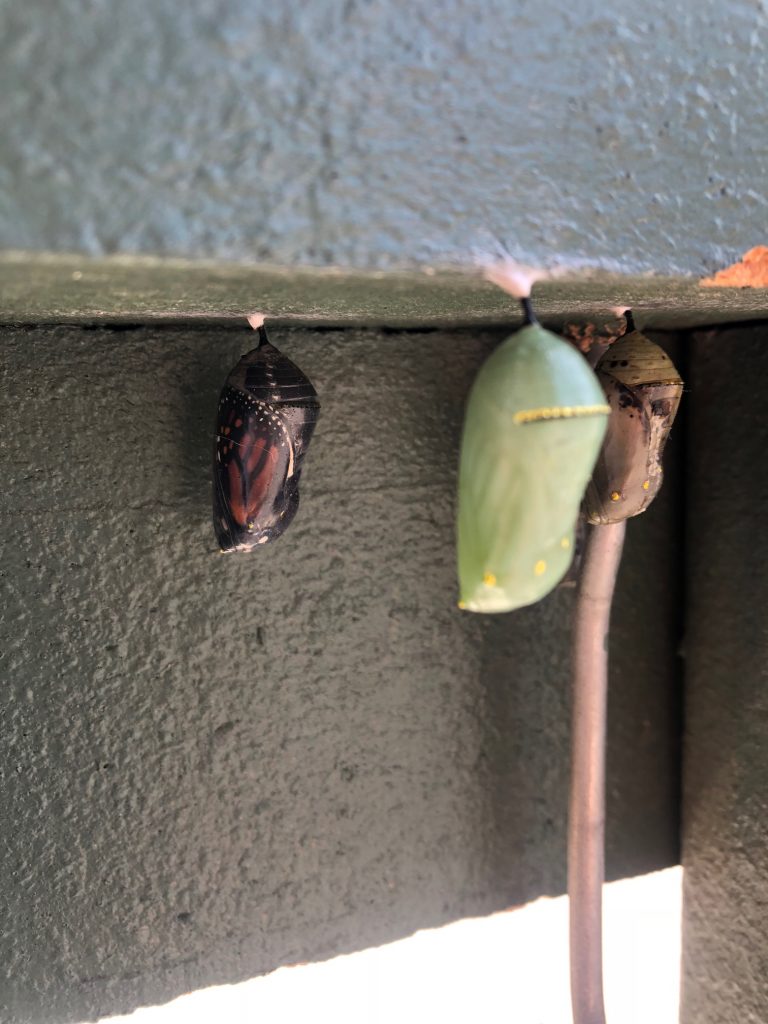
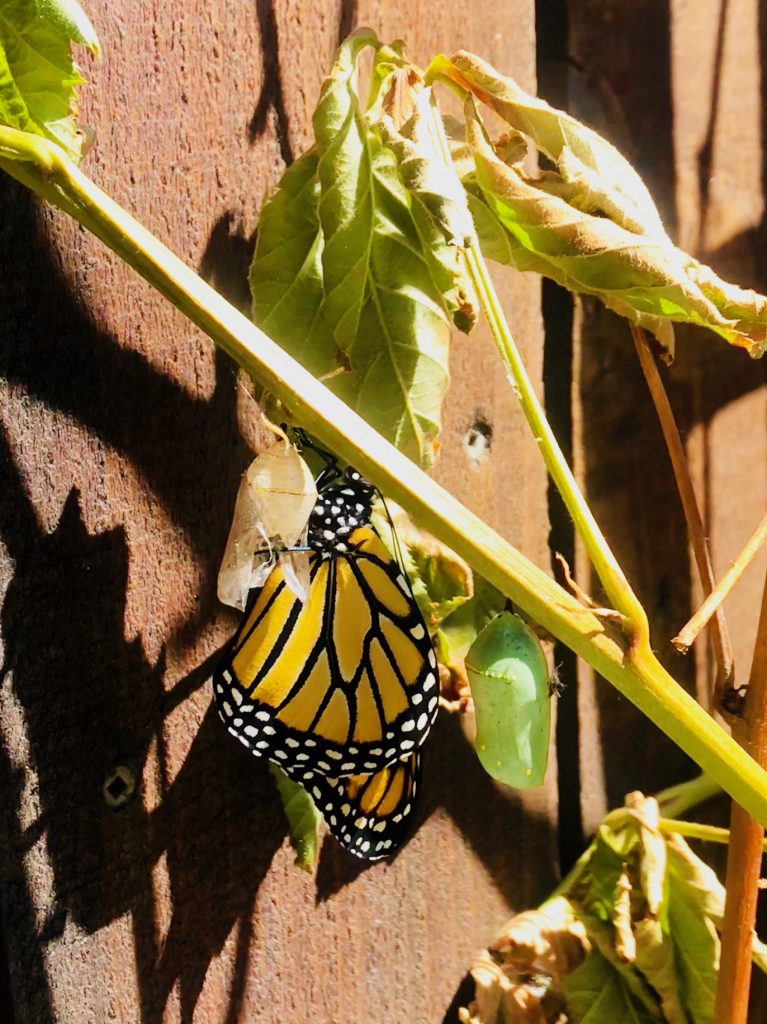
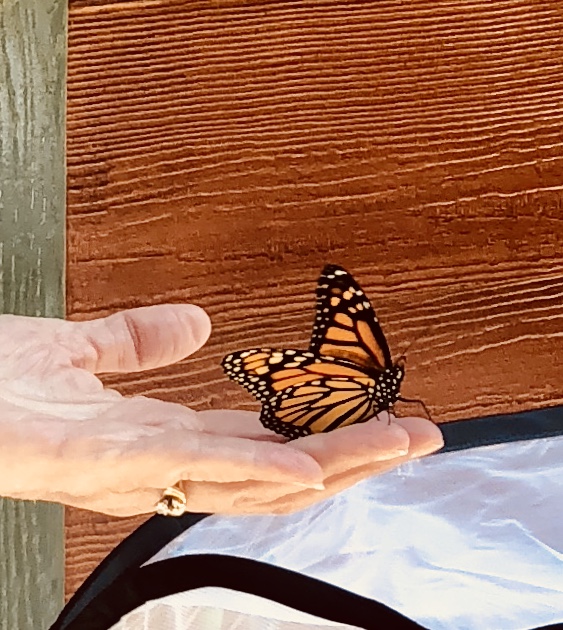
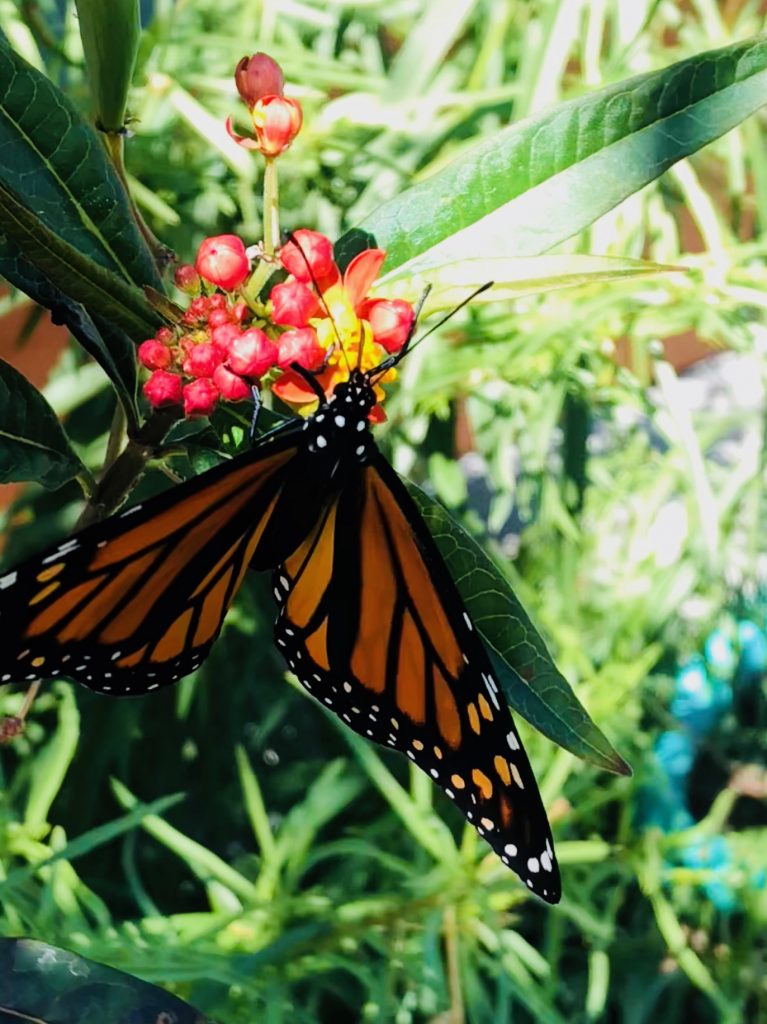
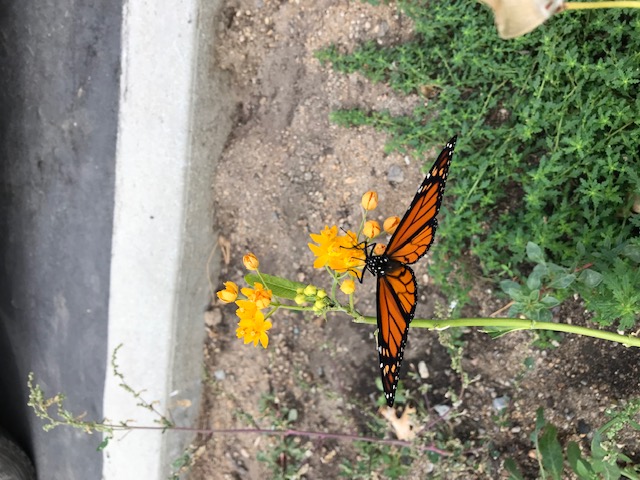
PCWD is enjoying hosting the majestic Monarch butterflies and watching the hungry little caterpillars grow. We have been watching the Monarch’s for months now. They flutter into the garden leaving their tiny little egg behind. It wasn’t long before we started discovering tiny little baby caterpillars. For weeks we found more eggs and more caterpillars. Now, everyday we see the changes in these little growing caterpillars and we have started finding newly formed chrysalis.
Did you know that the percentage of monarchs that survive from egg to adulthood is very low? Some researchers believe that less than 10% of the monarch’s that make it to adulthood and others think it is less than 5% that survive to become a Monarch Butterfly. Here at PCWD we are enthusiastic about helping support these majestic creatures along their journey of transformation. It seems that the Monarchs have been enjoying the Milkweed garden dedicated to them.
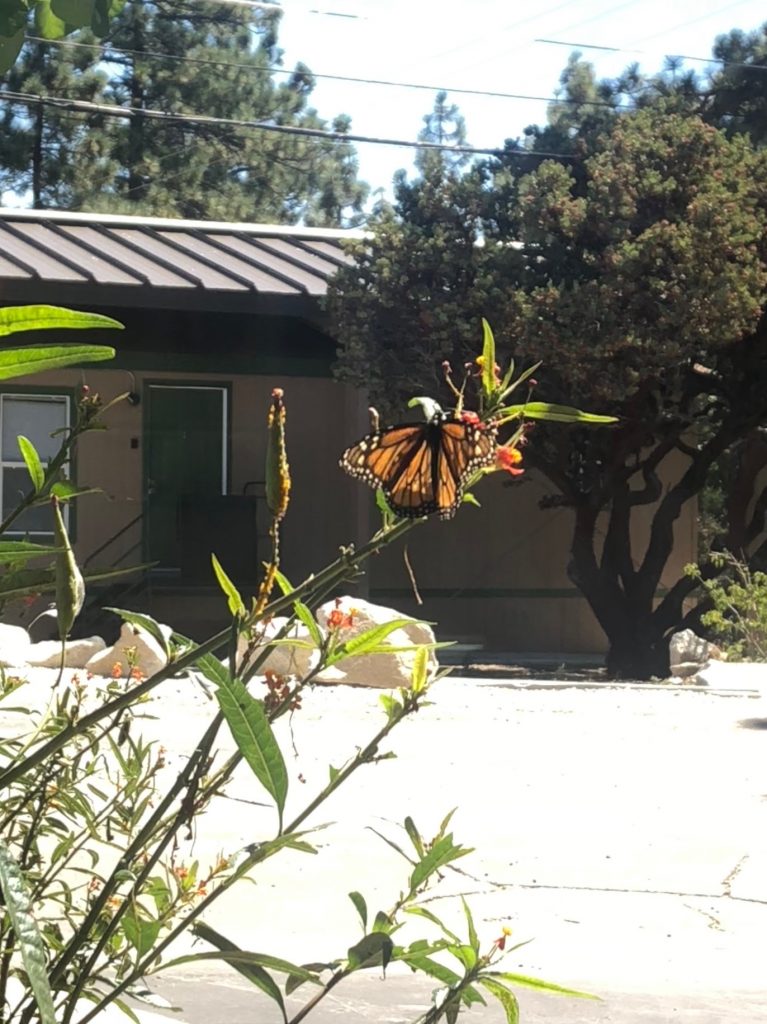
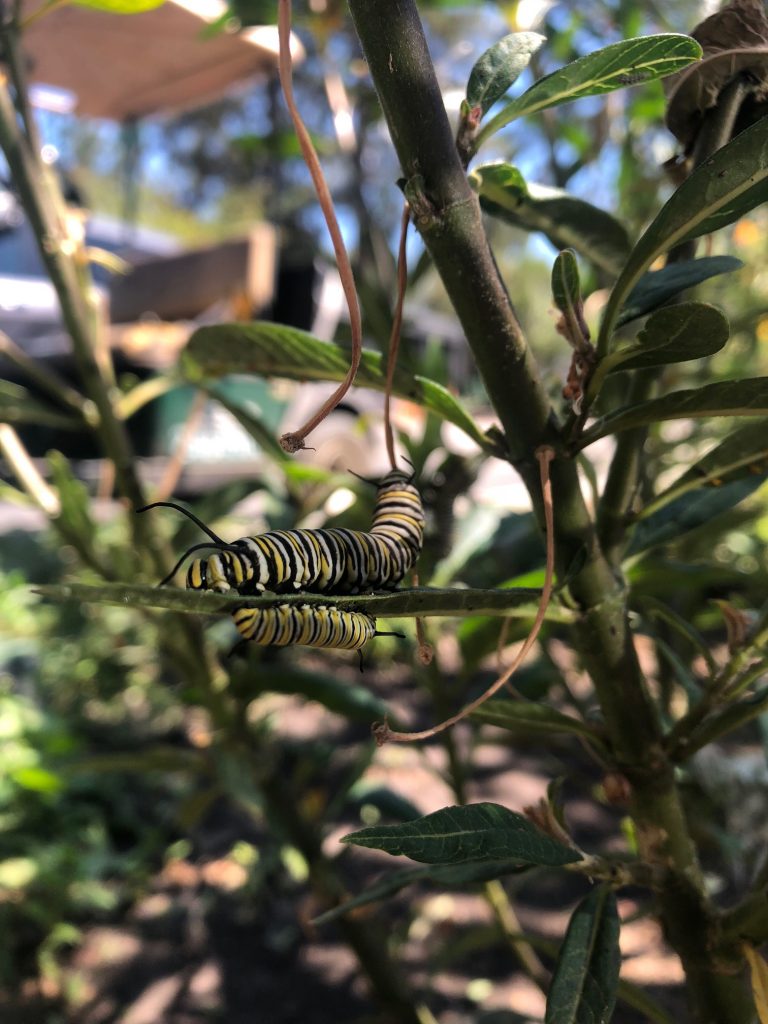
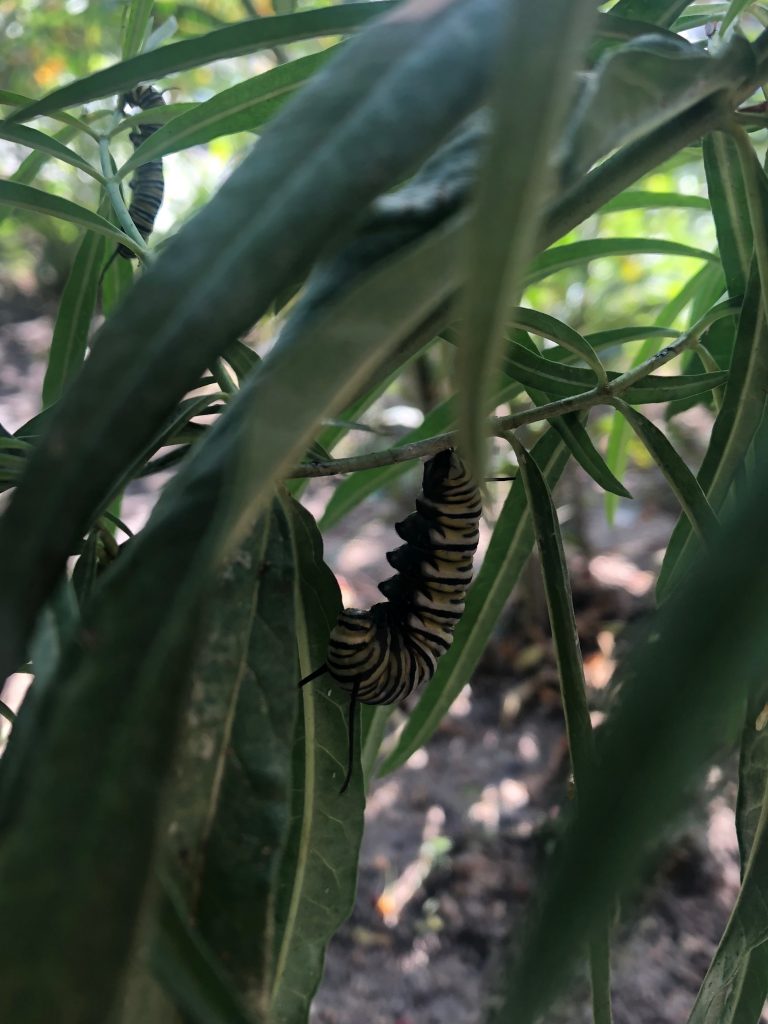
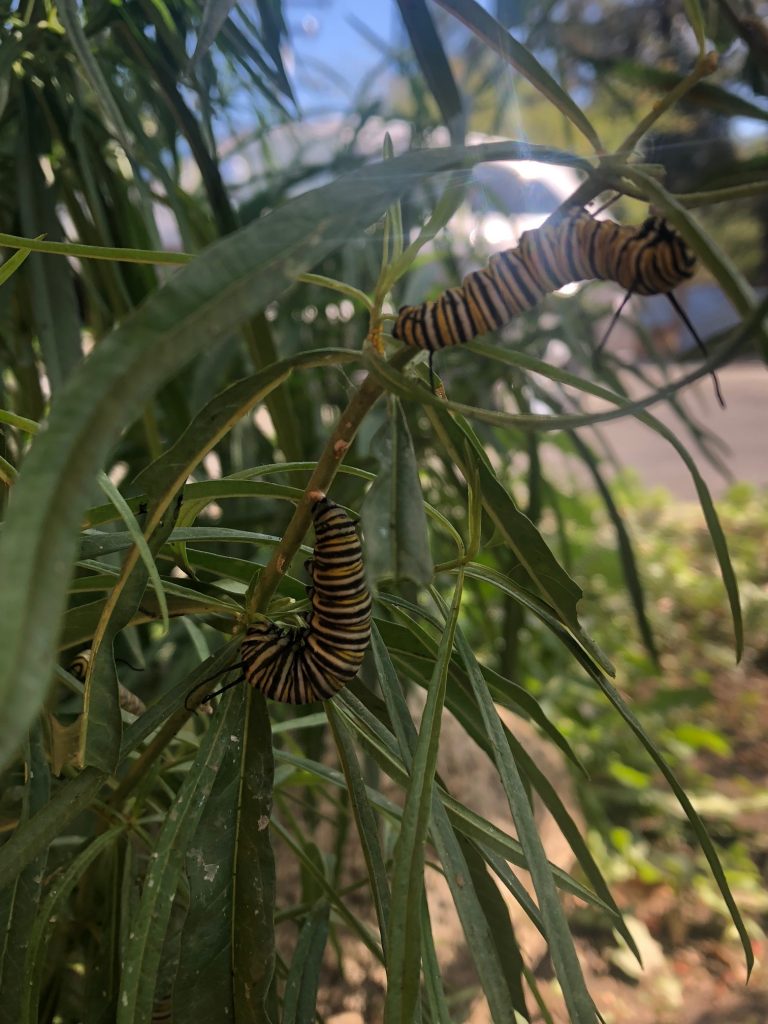
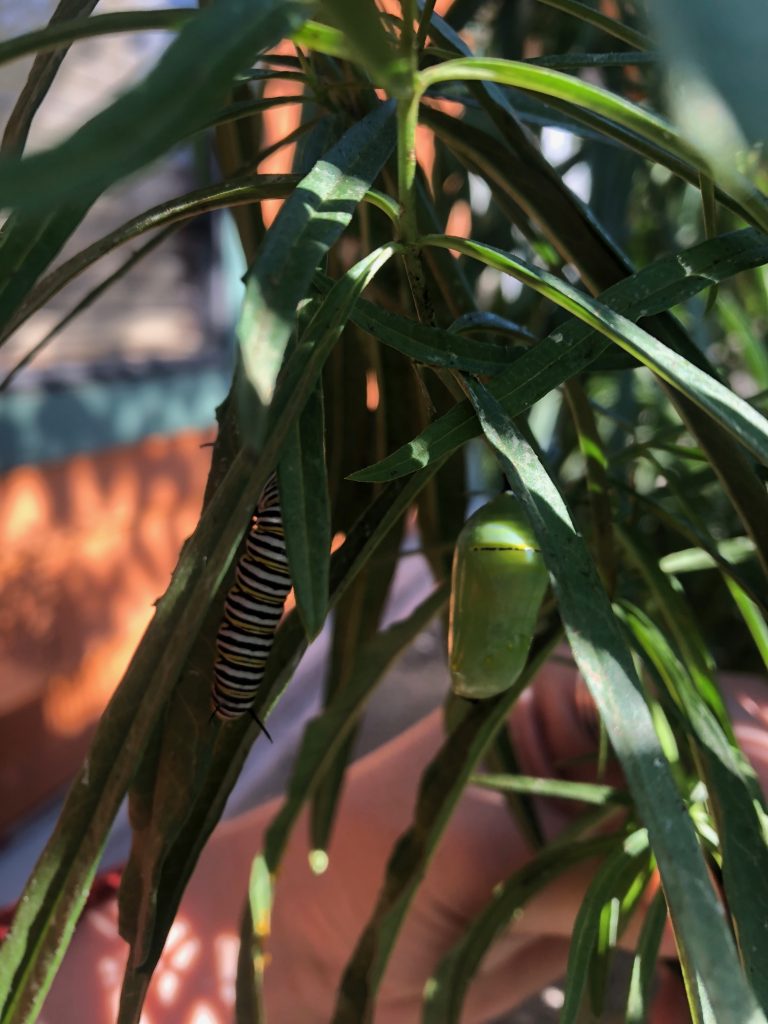
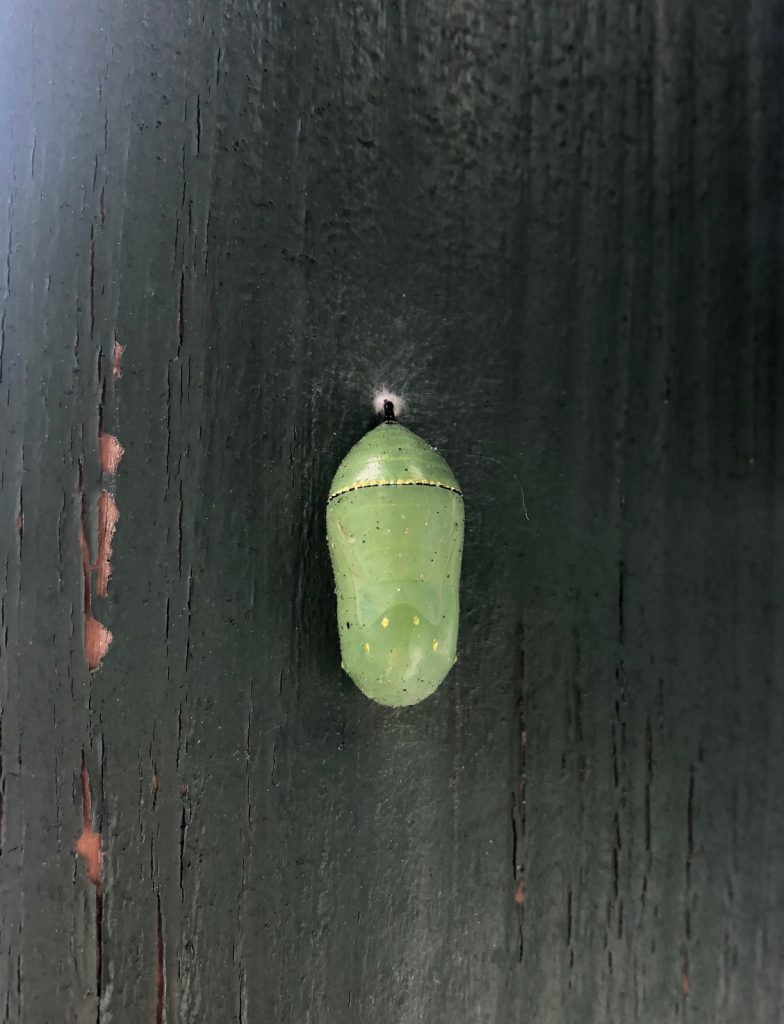
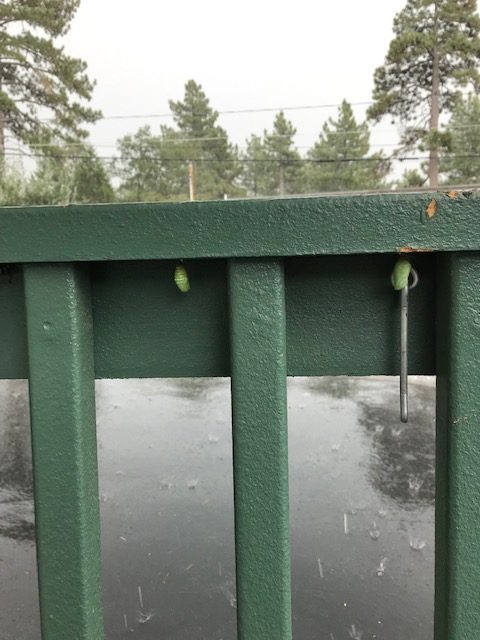
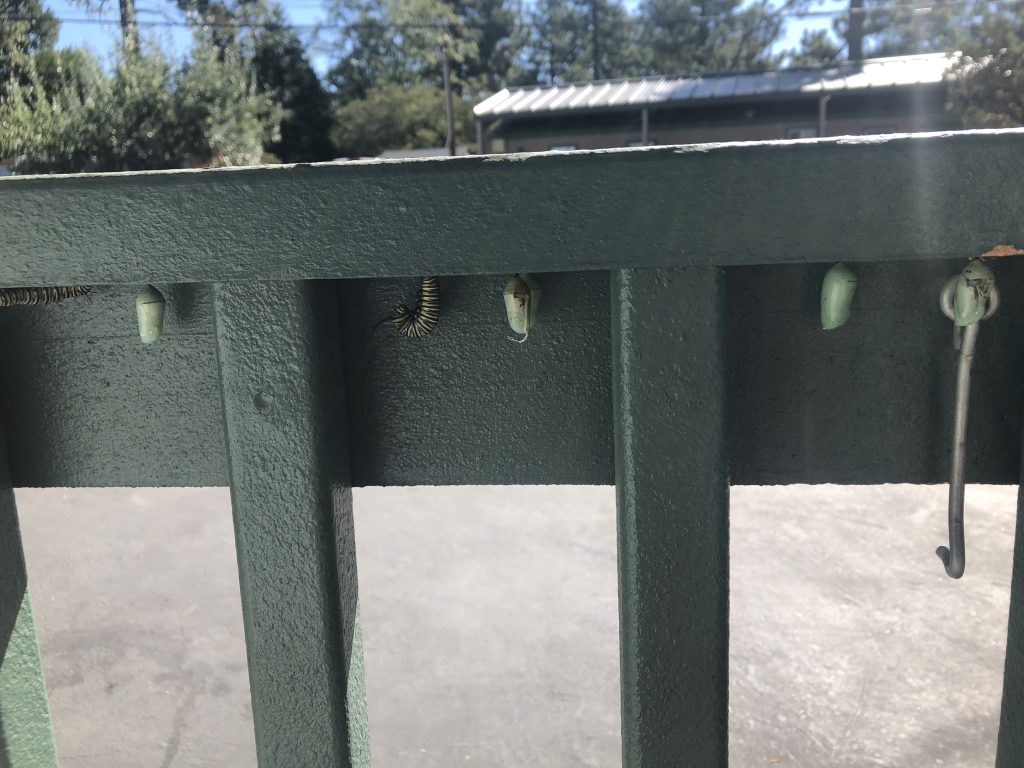
Did you know that Monarch Butterflies don’t make a cocoon but the actually form what is called a chrysalis. For the most part, butterfly caterpillars do not build cocoons, but instead harden into chrysalis during their transnational pupal stage. There are a few exceptions but primarily it is the moth that surrounds itself in a cocoon for protection during its pupal stage. The major difference between a chrysalis and a cocoon is that a chrysalis is the hardened body of a butterfly pupa, whereas a cocoon is an external structure constructed by larvae to protect themselves during the pupal stage. The life cycle for both the moth and the butterfly is very much the same. Starting with the adult female laying eggs, which hatch into caterpillars. As caterpillars grow, they molt and shed their skin four to six times before transforming into pupae. The pupa is the final stage of development, during which metamorphosis takes place over a period of about two weeks. At the end of which an adult butterfly or moth emerges. For Monarch butterflies like most butterflies the chrysalis is the pupal stage of butterfly development. Just before its final molt, a butterfly caterpillar spins a small disk of silk to attach itself to the underside of a leaf or twig. The caterpillar sheds its skin one last time as the pupa emerges. The outer surface of the pupa hardens into a protective shell, which often takes on a color and shape to help blend it into its surroundings.
Pine Cove Water District
24917 Marion Ridge Road • P.O. Box 2296 • Idyllwild CA 92549-2296 • 951.659.2675
